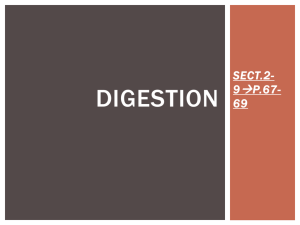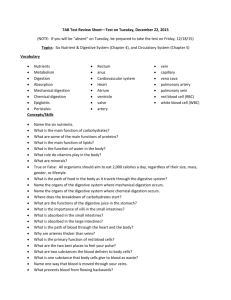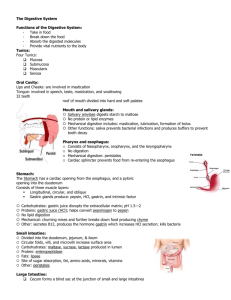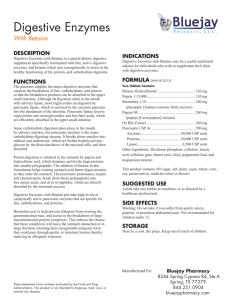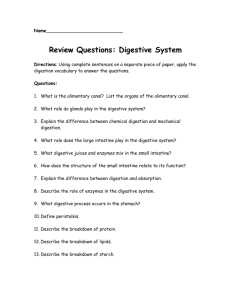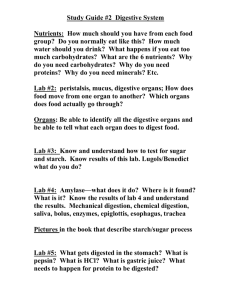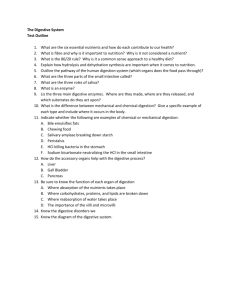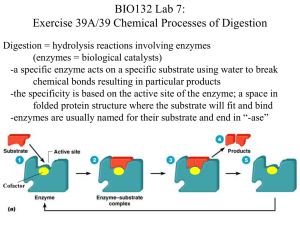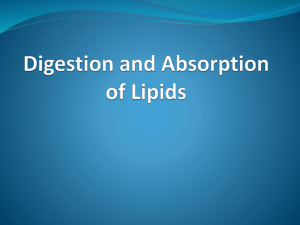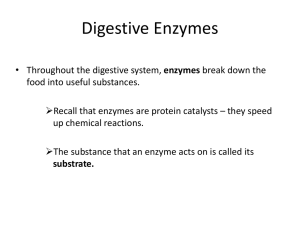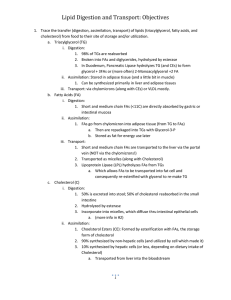Digestion Enzyme Article
advertisement
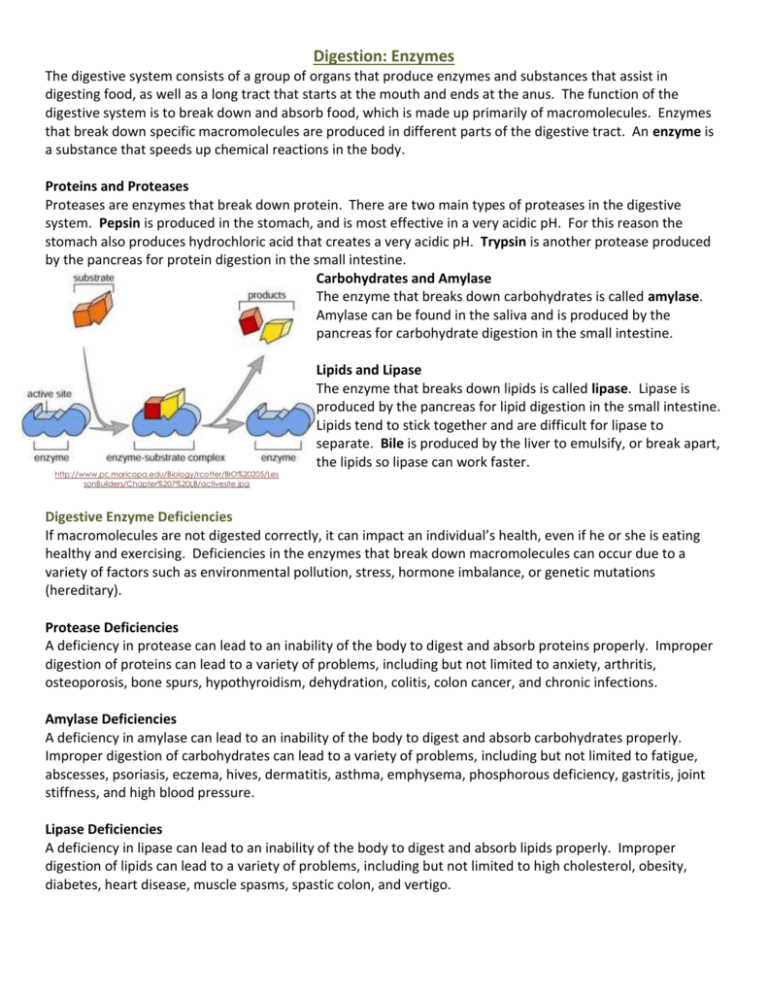
Digestion: Enzymes The digestive system consists of a group of organs that produce enzymes and substances that assist in digesting food, as well as a long tract that starts at the mouth and ends at the anus. The function of the digestive system is to break down and absorb food, which is made up primarily of macromolecules. Enzymes that break down specific macromolecules are produced in different parts of the digestive tract. An enzyme is a substance that speeds up chemical reactions in the body. Proteins and Proteases Proteases are enzymes that break down protein. There are two main types of proteases in the digestive system. Pepsin is produced in the stomach, and is most effective in a very acidic pH. For this reason the stomach also produces hydrochloric acid that creates a very acidic pH. Trypsin is another protease produced by the pancreas for protein digestion in the small intestine. Carbohydrates and Amylase The enzyme that breaks down carbohydrates is called amylase. Amylase can be found in the saliva and is produced by the pancreas for carbohydrate digestion in the small intestine. http://www.pc.maricopa.edu/Biology/rcotter/BIO%20205/Les sonBuilders/Chapter%207%20LB/activesite.jpg Lipids and Lipase The enzyme that breaks down lipids is called lipase. Lipase is produced by the pancreas for lipid digestion in the small intestine. Lipids tend to stick together and are difficult for lipase to separate. Bile is produced by the liver to emulsify, or break apart, the lipids so lipase can work faster. Digestive Enzyme Deficiencies If macromolecules are not digested correctly, it can impact an individual’s health, even if he or she is eating healthy and exercising. Deficiencies in the enzymes that break down macromolecules can occur due to a variety of factors such as environmental pollution, stress, hormone imbalance, or genetic mutations (hereditary). Protease Deficiencies A deficiency in protease can lead to an inability of the body to digest and absorb proteins properly. Improper digestion of proteins can lead to a variety of problems, including but not limited to anxiety, arthritis, osteoporosis, bone spurs, hypothyroidism, dehydration, colitis, colon cancer, and chronic infections. Amylase Deficiencies A deficiency in amylase can lead to an inability of the body to digest and absorb carbohydrates properly. Improper digestion of carbohydrates can lead to a variety of problems, including but not limited to fatigue, abscesses, psoriasis, eczema, hives, dermatitis, asthma, emphysema, phosphorous deficiency, gastritis, joint stiffness, and high blood pressure. Lipase Deficiencies A deficiency in lipase can lead to an inability of the body to digest and absorb lipids properly. Improper digestion of lipids can lead to a variety of problems, including but not limited to high cholesterol, obesity, diabetes, heart disease, muscle spasms, spastic colon, and vertigo.

